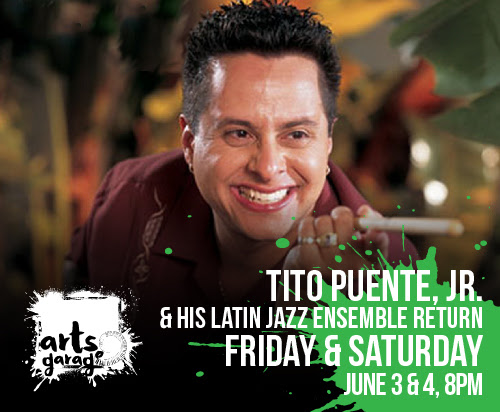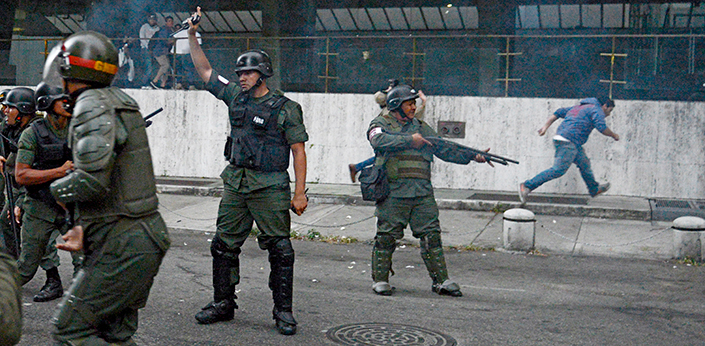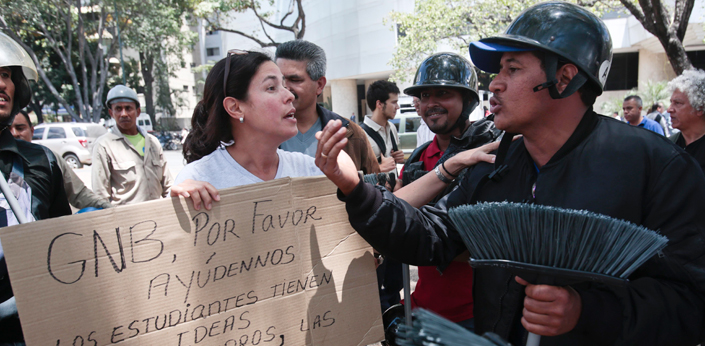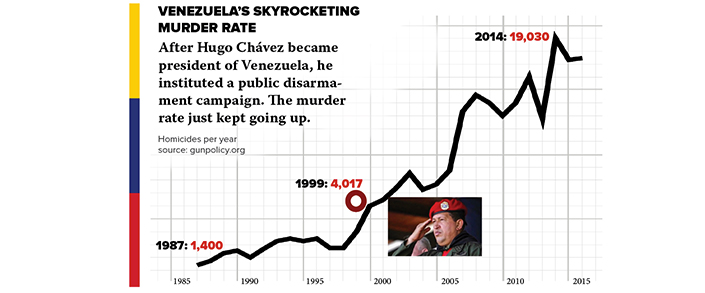|
|
El jurado ha logrado ponerse de acuerdo. Tienen un veredicto final en el juicio que enfrenta a Johnny Depp y Amber Heard, el mas mediáticos de los últimos años. Los siete miembros del jurado, formado por cinco hombres y dos mujeres, han conseguido llegar a una opinión conjunta que determinará quien de los dos actores vence en esta larga batalla legal, que se ha largado seis semanas. Finalmente, Johnny Depp ha ganado el juicio contra la que fuera su exmujer, que tendrá que pagarle 15 millones de dólares por difamación.

Tito Puente Jr at Arts Garage
Birthday Celebration
June 3-4
with Special Guest
Melina Almodovar
94 NE 2nd Ave., Delray Beach
561-450-6357; info@artsgarage.org
$50-55
Son of the legendary American salsa and Latin jazz musician Tito Puente, Tito Puente, Jr. has big shoes to fill. And boy does he! Tito Puente, Jr. returns for another night of exhilarating Latin rhythms that will get your feet moving. Always honoring his father’s legacy, Tito Puente, Jr. has also made a name for himself as one of the most exciting Latin musicians touring today. Puente, Jr. has performed in over 300 shows in a variety of venues across the country, from jazz festival stages to grand symphony halls.
The comparison is inevitable. How could it be otherwise? Tito Puente Jr. carries his father with him – imprinted on his physical being and locked in his soul. It’s in his looks, his joy, and his music. Tito, Jr. is on a passionate mission. The younger Puente is determined to nurture the musical legacy left by his father. He refuses to let his father become a distant memory. “He was just too vibrant, too exciting. There was magic in the music my father made. It made people happy all over the world.” He has found captive audiences who echo his passion. Crowds lured to a venue by the father are returning to see the son — and to once again participate in the high voltage celebration that takes place on stage. Tito Puente, Jr. has become an audience favorite in casinos, performing arts centers, symphony halls and jazz festivals worldwide, performing more than 300 shows over the past 5 years.
His 2004 album, “In My Father’s Shoes” featured the classic Puente titles and was spun into a BET Jazz television special of the same name. He was seen in a tribute to his father’s music on NBC’s two hour special–“The Apollo at 70: A Hot Night in Harlem.” He has also appeared on the ABC soap opera hit “One Life to Live” in performance with his big band. Symphony appearances include Dallas, San Antonio, Colorado, South Bend, and upcoming performances with the Palm Desert Symphony and the National Symphony Orchestra conducted by Marvin Hamlisch. Tito, Jr.’s new CD release, “Got Mambo?” is a mixture of the old and the new as he takes a musical departure into some powerful new music he can truly call his own.
Guest artists Bobby Cruz and Hansel & Raul help make this a coming of age project for Puente, Jr. and the album is receiving heavy praise from Tropical and Latin Jazz critics alike. Tito Jr. reveres the magnificent, lasting impact his father had on our musical lives. “People who don’t know anything about Latin music know my father and people always, always smile when they say my father’s name,” he confides. “That is a very special gift I have been given.”
The City of Miami Beach on Sept 29th presented Tito, Jr. with the key to the city. Tito, Jr. lives in South Florida and has two children, Miranda and Antonio.
Courtesy of KCC Productions
1 de junio - 30
Los mejores descuentos en Hoteles.
La temporada de verano nos trae miami Hotel Meses , cuando se pueden encontrar grandes ahorros en hoteles locales que van desde conocidos Hotel marcas a hoteles boutique y resorts de lujo. Propiedades solicitadas como el Beacon Hotel South Beach , C.A. Hotel miami wynwood , la Clevelander y InterContinental Miami ofrecerá tarifas mucho más bajas de lo habitual, dando a los visitantes la oportunidad de una estadía relajante y ahorro importantes.
1 de junio - 5 de septiembre
Resuelve Crímenes en el Museo de Ciencias Frost
Él Phillip and Patricia Frost Museum of Science da la bienvenida Sherlock Holmes: La exposición , corriendo a través de 5 de septiembre . La exhibición comienza con una mirada a la ciencia forense que se destacó a fines del siglo XIX, incluida la balística, el telégrafo, los mapas y la fotografía. Una vez que los invitados han aprendido la ciencia, son liberados para revisar un crimen. Scene para tratar de resolver un caso curioso que involucra a un periodista estadounidense visitante y su familia desaparecida. La investigación interactiva requiere ingenio y deducción, y agrega un giro final a la trama.
2 de junio - 26
Disfruta de la Ópera de Blues
Miami Motel Stories, un escaparate de formato corto para artistas y narradores locales, regresa después de una pausa de dos años con Eric Garcia's Ópera de blues . El espectáculo individual tiene lugar de jueves a domingo por la noche en un dúplex "secreto" en Little Havana , donde 10 los invitados disfrutarán de una velada íntima con el hombre al que llaman "Tío Scotchy". Los guiará en juegos de beber, interpretará algunas canciones y contará historias reales.
9 de junio y 23
Conciertos de Verano con Músicos de Clase Mundial
Él Programa de Artes Comunitarias trae su serie de conciertos de verano de vuelta a Coral Gables Iglesia Congregacional cada dos jueves hasta 18 de agosto , comienzo 9 de junio con el tributo del clarinetista Ken Peplowski al gran jazz Benny Goodman. La serie continúa 23 de junio , cuando el ganador del Concurso Internacional de Violín Joseph Joachim, Timothy Chooi, toma The Stage con acompañamiento de piano en vivo.
15 de junio - 19
American Black Film Festival
Él Festival de Cine Negro Americano no es solo un escaparate para cineastas y artistas negros, donde Kevin Hart, Halle Berry e Issa Rae proyectan sus últimos proyectos. Además de ver películas de vanguardia, los asistentes también pueden escuchar mesas redondas, ver detrás de escena de la producción de cine y televisión, y asistir a las presentaciones de premios del festival en varios lugares en Miami Beach .
16 de junio
Juneteenth Juke Joint
Él Centro Adrienne Arsht para las Artes Escénicas acoge su inauguración Juneteenth Juke Joint , un tributo al arte, la música y la comida de los afroamericanos del Sur. La diversión comienza en 19 h sobre 16 de junio con un menú de hora feliz de comidas inspiradas en Juneteenth y cócteles artesanales. Luego, los invitados disfrutarán de un conjunto especial de ritmos panafricanos de DJ Nickymix y una actuación de R&B del nativo de Miami LaVie.
18 de junio
Revive los años 80´S
Los días de gloria del hair rock están de vuelta a lo grande cuando Mötley Crüe encabeza una alineación estelar de superestrellas de los 80 en Hard Rock Stadium a partir de 16:30 h Otros clásicos favoritos en el cartel incluyen Poison ("Every Rose has its Thorn"), Def Leppard ("Pour some Sugar on Me") y Joan Jett and the Blackhearts ("I love Rock and Roll").
19 de junio
Crucero de Pesca por BISCAYNE BAY
El Día del Padre cae el tercer domingo del mes, y aunque no faltarán lugares que ofrezcan almuerzos especiales, este podría ser el año para probar algo diferente y llevarlo a pescar. Él Deering Estate ejecutará un Three -hora de atrapar y soltar crucero de pesca a partir de 13 h , donde los naturalistas a bordo también hablarán sobre las aves y los mamíferos marinos que verás en el camino.
25 de junio
Pruebe las frutas tropicales del verano
La canasta de pan agrícola de Miami en South Dade exhibe sus mejores creaciones en el Festival de frutas de verano . Esta reunión de un día de agricultores locales en el Fruit & Spice Park ofrecerá a los visitantes la oportunidad de probar frutas tropicales raras, así como aprender a cultivar y cultivar frutas durante talleres educativos. Para algo aún más dulce, vaya a una de las carpas especializadas dedicadas a Fresh batidos y frutas cubiertas de chocolate.

The Venezuelan government publicly destroying confiscated guns in 2012
When I was a little girl in the early 1990s, my father worked in the energy industry and often flitted off to South America. He brought us back postcards and chucherías from this faraway land of Venezuela, describing it as the most picturesque nation in Latin America. The nation was then awash in oil wealth, the highest growth rate in the region, boundless education opportunities, fine foods and world-class beaches.
It seemed a mystical paradise where nothing could go wrong. Until it did.
When I stepped foot into the embattled nation a year ago to cover the burgeoning humanitarian crisis, none of my experience in war zones prepared me for the calamity that seemed to get worse with every step across the Colombian border. Venezuela had sunk into a violent humanitarian crisis. There was next to no rule of law.
The haunting images of desperate women chopping off their luscious hair in order to sell it for a few dollars, of mothers bottling their breast-milk to barter to other women so malnourished they couldn’t produce their own and the chilling sights of females as young as 14 years old selling their precious bodies unfurled around me.
Cúcuta, a city straddling the Colombian and Venezuelan border, had become the stuff of nightmares: a microcosm of the conflict burning Venezuela alive. Its citizens had become unable to defend themselves or their families from danger and economic ruin.
And the Venezuelans are the first to tell you that so many of them willfully surrendered their right to bear arms in the lead-up to the 2014 crackdown. They told me this as clear words of warning.
“Venezuela is paying the price for the gun ban. The civilians are unable to defend themselves from criminal actors and from this Maduro regime’s abuses,” activist and university teacher, Miguel Mandrade, 34, said from the fog-laden, barren city of San Cristobal. “The uprising would have taken a different path and a different result if civilians had the right to defend themselves with the firearms they once owned.”
Each morning, as the sun rose over the tropical plains now dotted with homeless people and trash, I would sit by the jagged border crossing and watch as thousands flooded into Colombia from Venezuela carrying everything they owned in little backpacks, their feet swollen and shoes broken from the days and weeks of walking. It was a sight that was hard to digest.
Some 4 million have fled the profoundly impoverished nation that, as this was being written, was still led by socialist dictator Nicolás Maduro. Meanwhile, the millions left languishing inside Venezuela’s borders are starving and without critical services and medical care. Homicide and crime rates are escalating as the inflation rate soars. The government has unleashed its forces and proxy militias to wage war on a troubled and defenseless population.
But the trigger of gun prohibition wasn’t pulled in an instant. Over several years, Venezuelan authorities chipped away at individual gun rights.As they did so, crime rates crept higher and higher.

The following year, Caracas banned the commercial sales of guns and shuttered the doors of firearms stores across the country. It was mandated that only military, police and security forces could legally own and buy guns.
Then, in 2012, Maduro signed into law the Disarmament and Arms Munitions Control, which carried the explicit objective to “disarm all citizens.” Chávez initially ran a months-long amnesty program urging Venezuelans to swap their arms for electrical goods; however, only 37 surrenders were recorded, while more than 12,500 guns were seized by force.
The government held grandiose decimation displays in the streets by bulldozing firearms en masse in front of large crowds in a bid to demonstrate their commitment to supposedly end gun violence.
In 2014, a further 26,000 firearms were confiscated or crushed—coincidentally, Venezuela clocked in as having the world’s second-highest homicide rate that very same year. Each year that the gun-control reins were pulled tighter, murder rates increased.
In 2001, according to gunpolicy.org, 6,568 homicides were recorded in Venezuela. By 2014, that number had jumped to 19,030.
Not-so-coincidentally, the black market in weapons also began to boom, with an estimated 6 million illegal guns in the country.
“The market works through international borders, in maritime and land areas, and the government itself has been a gun provider,” said Walter Márquez, a Venezuelan historian and former National Assembly Representative. “The government took legal weapons away from private people, disarming all those who could oppose it.”

The seller, a man with bloodshot eyes who offered no name, explained that handguns start at around $250 and rifles around $500. As I heard these prices, I knew that the overwhelming majority of the Venezuelan population is lucky to receive a few dollars a month in their socialist government stipend.
Even the black market is run by corrupt government officials who exploit their positions of authority. They access contraband items and sell them at high prices to those who can pay. I learned all this through my intermediaries who watched day after day as those appointed to the government found ways to profit off their positions.
“Not surprisingly, the individuals with the funds to purchase weapons are usually narco-traffickers or other bad actors; however, the black market is also used by many expat Venezuelans who want to purchase food and medicine for their families,” said Ephraim Mattos, executive director of Stronghold Rescue & Relief, which issues humanitarian aid to fleeing Venezuelans. “These expats earn money in other countries and illegally send the money to government officials in Venezuela who then deliver the goods to the expat’s family.”
He pointed out that the very same firearms which were turned over by the law-abiding citizens to the government in the so-called buy-back schemes have, in turn, been given to government-sponsored armed groups that now directly oppress the law-abiding citizens who turned in their guns.
The most egregious offenders are known as the “colectivos,” or collectives. They are armed by Caracas and deemed vital to Maduro’s survival. The collectives ruthlessly oppress opposition groups, giving Maduro a cosmetic cover.
When we saw them, we ran for cover. When a few learned that we had crossed the fragile border without paying off the number of people we were supposed to, they chased us through the thick crowds of fleeing people. A few heart-in-throat moments later, after a panicked exchange between my interpreter and the half-masked men, I was instructed to leave the area.
I was one of the lucky ones.
“Venezuelans will often travel to neighboring countries with valuables to sell, such as jewelry and electronics,” Mattos said. “The colectivos will stop the travelers at random and steal those items—women are often raped during these stops as well.”
“At the border, the colectivos usually charge a tax to cross as well,” he continued. “The Venezuelan people are suffering for the simple mistake of giving up their ability to protect themselves from a socialist government. They willingly invited the enemy into their own home. The destruction of the country was not the sudden result of an armed overtake of the government, but rather it was the insidious lies that slowly crept in and infected the country.”
Chavez, Maduro’s predecessor, was democratically elected by the Venezuelan people, and he is the one who began the process of socializing the Venezuelan economy.

“The Venezuelan population trusted the government at all times that it would always use its authority within certain boundaries, and whenever it got out, we thought it would be solved by democratic or legal mechanisms. Our political and public behavior confirmed our cultural naivety in this sense,” said Javier Vanegas, 29, a Venezuelan teacher. “We are paying the price of not having had a strong gun culture.”
Before the 2012 changes, there were only eight registered gun stores scattered across the nation of 31 million people. The process for law-abiding citizens even to obtain a legal gun permit and a firearm was a months-long ordeal hamstrung by protracted wait lines, high costs and demands for bribes. Only one department, which operated under the Ministry of Defense, had the authority to issue civilian permits.
The collectives ruthlessly oppress opposition groups, giving Maduro a cosmetic cover. When we saw them, we ran for cover.
In late 2017, when Venezuela was in the clutches of its spiraling economic catastrophe, Maduro announced he would distribute some 400,000 arms to his patriots—claiming a U.S.-led coup was coming—and the civilian population was left as sitting ducks. Since April of that year, hundreds of Venezuelans protesting the government, armed with little more than stones and paper signs, have been shot or have disappeared in retaliation.
“If citizens had access to guns, and if they had been armed since before the arrival of Chavez, it would have been, at least, a powerful obstacle to the socialist agenda,” said Vanegas. “Socialism thrives in chaos. The perfect tool for chaos in most of Latin-America is criminality. If the people had had the tool to defend themselves, instead of resorting to more state power to end the criminality (an end the government never intended to give), then, of course, it would have made a huge difference.”
In recent years, he said, the daily life of the unarmed Venezuelan has been shaped by crime.
“People have stopped going out. Businesses and businessmen and women went broke or closed shop and left. The youth began to be fearful of spending time out in the city,” Vanegas said. “I personally had one family member and two friends kidnapped for ransom.”
The stuff of nightmares quickly became normal to the likes of Vanegas, who reflected that his complacency has been shattered as his beloved country has fallen apart. Scores of ailing Venezuelans told me that even before the protests sparked five years ago, calling the police to report a crime entailed long wait times and pressure to bribe officers not only to come, but to process the case per the book. Now, even making such a call is basically useless.
One person I met on my travels in the region whispered in hushed tones that those who dare keep an old gun beneath their bed—or those who have the finances to find one on the black market—risk the punishment of 20 years behind bars. This person confessed that he kept an old revolver that once belonged to his grandfather. He worried that if he used it to save his own life, the Maduro regime would then come to take him away to prison.